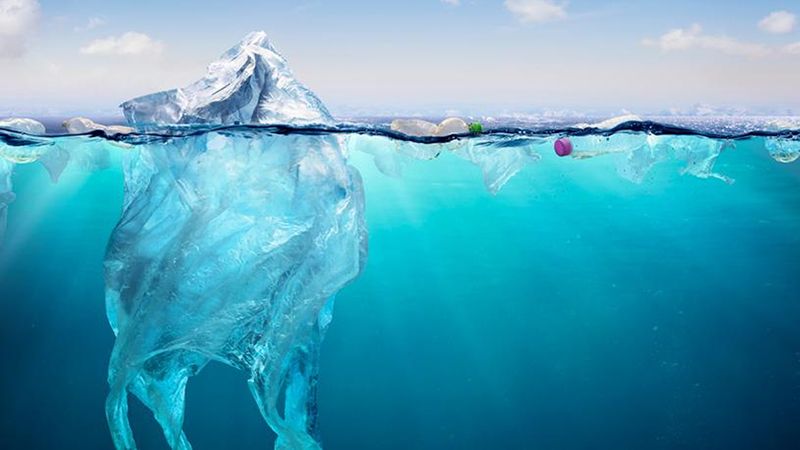Combatting Microplastics with AI Real-Time Monitoring
Columbia Engineering wins a new grant from the National Oceanic and Atmospheric Administration to develop AI-system for sustainable waterways and ocean health

Photo Credit: Romolo Tavani/Shutterstock
This article was first published on
www.engineering.columbia.eduPlastic pollution poses a significant threat to our waterways and oceans. Columbia Engineering and Columbia Climate School are taking decisive action to address this problem.
Collaborators Beizhan Yan, Lamont Research Professor at Lamont-Doherty Earth Observatory (LDEO) at Columbia Climate School, and Zoran Kostic, professor of professional practice in Columbia Engineering’s Department of Electrical Engineering, have been awarded a $2.7M grant from the National Oceanic and Atmospheric Administration's (NOAA) Sea Grant program for their latest project, "Precision Plastic Waste Cleanup and Monitoring: AI-Enhanced Solution for Sustainable Waterways and Ocean Health."
The award underscores the federal commitment to addressing the marine debris crisis. As part of NOAA’s efforts to protect and preserve America's natural resources, this investment supports innovative projects that promise sustainable, long-term solutions to the pervasive problem of plastic pollution. The research was selected for its potential to make a significant impact on both local and global scales.
Their project combines expertise in the domains of environmental science, applications of artificial intelligence (AI), mechanical design, low-power signal processing and communications, image and video processing, data analysis, and internet of things (IoT).
“The project exemplifies the power of multidisciplinary collaboration in addressing plastic pollution,” says Yan. “The current plastic collection approaches have encountered challenges in efficiency, leading to unsustainability. The urgent need for collaboration is also the exact reason why Prof. Thanos Bourtsalas and I formed the Plastic Pollution Analysis and Suitability Solution network about three years ago, where we have gathered expertise from engineering, science, policy, environmental health, and more to tackle this global issue.”
Kostic adds, “It is immensely satisfying to be able to collaborate with experts in environmental sciences and use my scientific and engineering experience in AI and signal processing to benefit the cause of engineering for a healthy humanity.”
Plastic waste collection with AI-supported automation
The project addresses a critical environmental challenge: the vast amounts of plastic waste entering our oceans from rivers and coastlines. Traditional waste collectors often struggle to differentiate between plastic and natural debris, leading to inefficiencies and increased maintenance costs.
Led by Kostic, who also is a member of Columbia’s Data Science Institute, the researchers bring a wealth of expertise in deep learning and AI applications to this work. The Kostic lab, Applications of AI and Deep Learning Lab (AIDL), known for exploring AI-driven solutions in diverse fields, now leverages these advanced technologies to address the pressing issue of plastic pollution. Kostic is committed to integrating cutting-edge AI research with real-world applications. He is involved in the Columbia Center of Artificial Intelligence Technology and his recent research, presented at the CVPR 2024 conference, focuses on a data-driven simulation environments for modeling traffic in metropolitan street intersections using real-world tracking data, designing low-latency high-bandwidth deep-learning systems for applications in smart cities, and applications of AI in surgery and speech analysis.
An advanced monitoring and collection system
The novel device will leverage advanced spectral and consumer color camera imaging to accurately distinguish plastics from natural debris such as leaves and branches. This selective approach, say the researchers, enhances the efficiency of waste collection and also minimizes ecological disruption by preserving natural debris in its ecosystem.
The prototypes, once developed, will undergo rigorous testing in the Hudson and Bronx Rivers. This ensures the system's adaptability to various hydrological conditions and its effectiveness in real-world scenarios. The researchers plan to create a cost-effective version for deployment in developing countries.
Sustainable outcomes and global impact
The system's on-board and in-situ processing capabilities will significantly reduce sorting and transport costs by accurately identifying and collecting plastic waste. The technology's adaptability promises broad applications, say the researchers, in commercial waste collectors, and could lead to widespread adoption and substantial cost savings.
Environmental and economic analyses will underscore the benefits of this innovative solution. By preventing plastic waste from entering the oceans, the project will mitigate the generation of microplastics and nanoplastics, improving waterway health and protecting aquatic life. Additionally, recycling efforts will be enhanced through the depolymerization of collected plastics into reusable monomers using engineered enzymes
A focus on community engagement and education
A crucial aspect of this initiative is community involvement. The New York Sea Grant will develop educational materials and hands-on activities to raise awareness and foster engagement, particularly in underserved communities. Clean Ocean Action will extend these efforts in New Jersey and Pennsylvania, further amplifying the project's reach and impact.
Other investigators on this project include Thanos Bourtsalas (Columbia Engineering), Nick Frearson and Joaquim Goes (LDEO), and Katherine Bunting-Howarth and Catherine Prunella (New York Sea Grant).